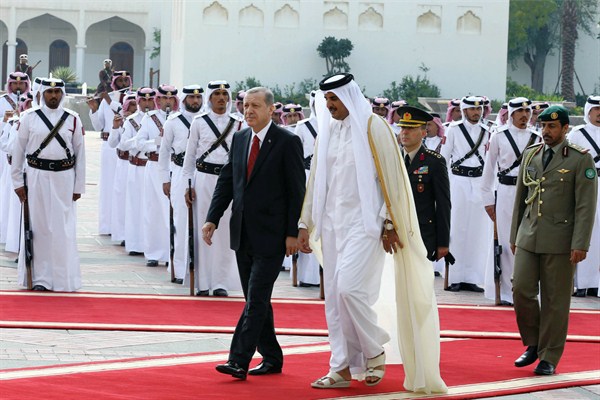Recep Tayyip Erdogan’s trip to Qatar two weeks ago was his second to the tiny oil- and gas-rich Arab state since he was elected Turkey’s president last year. The visit was significant because it inaugurated the first High-Level Strategic Cooperation Council meeting between the two countries, a mechanism created last year to deepen bilateral cooperation in strategic sectors.
During Erdogan’s visit, 16 separate agreements were signed for everything from education and maritime affairs to travel and energy. Some of the agreements—such as cooperation on archives, credential recognition in the maritime industry and public finance management—were technical in nature. Others, such as a security training protocol and a deal to boost energy ties, were high-level and short on detail. Nevertheless, the visit was significant because it institutionalized Turkey and Qatar’s bilateral cooperation, while sending several strategic signals about what has become a de-facto alliance.
There has been an unprecedented level of coordination between Ankara and Doha on regional foreign policy matters in recent years. The two states have taken a strong stance against Israel’s blockade of Gaza; opposed the military-backed coup against the Muslim Brotherhood in Egypt; and have been vociferous opponents of Bashar al-Assad in Syria. Underscoring this common front is their support of Islamist factions across the region, chief among them the Muslim Brotherhood and its affiliated organizations.

